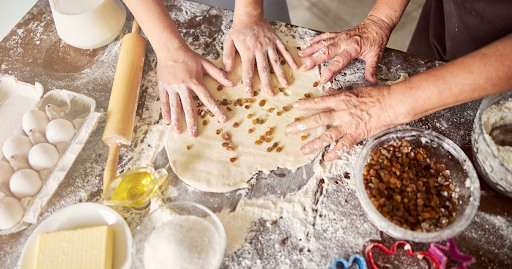
Welcome to the gastronomic world of culinary arts, where passion meets precision, and creativity knows no bounds. Embark on a tantalizing journey with Pinnacle Institute of Hotel Management college as we unveil the ultimate guide to Culinary Arts. Within these paragraphs, culinary enthusiasts will discover the secrets behind crafting culinary masterpieces, from mastering essential techniques to selecting the perfect tools and infusing dishes with innovative flair. Whether you’re a seasoned chef or an aspiring culinary artist, prepare to be inspired as we delve into the art, science, and sheer joy of culinary creativity. Get ready to sharpen your knives, ignite your passion, and unleash your culinary genius – the adventure begins now!
Your complete guide to a bachelor’s in Culinary Arts!
1. Understanding Culinary Arts
At the heart of the hospitality industry lies the art and science of culinary arts. From mastering the fundamentals of cooking to exploring diverse culinary traditions, culinary arts encompass a wide range of skills and knowledge essential for success in the culinary world.
2. Fundamentals of Cooking
In the culinary journey, mastering fundamental cooking techniques is paramount. Techniques such as sautéing, braising, roasting, grilling, and baking serve as the building blocks upon which culinary creations are crafted. Through practice and dedication, aspiring chefs can hone their skills and elevate their culinary prowess.
3. Essential Culinary Tools and Equipment
Behind every exceptional dish are the right tools and equipment. From precision knives to versatile cookware, equipping oneself with essential culinary tools is indispensable for culinary success. Understanding the function and proper usage of each tool empowers chefs to unleash their creativity in the kitchen.
4. Knife Skills
Among the most essential skills in culinary arts is the mastery of knife skills. From precise cuts to intricate techniques, honing knife skills enhances efficiency, safety, and presentation in the kitchen. With proper training and practice, chefs can wield their knives with confidence and precision.
5. Understanding Ingredients
Central to culinary excellence is a deep understanding of ingredients. From seasonal produce to premium meats, the quality and freshness of ingredients significantly impact the flavor and texture of dishes. By embracing diverse ingredients and exploring their unique characteristics, chefs can create culinary masterpieces that delight the senses.
6. Flavor Profiles and Seasoning
Seasoning is the soul of culinary artistry, elevating dishes from ordinary to extraordinary. Understanding flavor profiles and mastering the art of seasoning allows chefs to create harmonious blends of taste and aroma. Through experimentation and creativity, chefs can unleash the full potential of flavors and captivate diners’ palates.
7. Culinary Creativity and Innovation
Innovation is the driving force behind culinary evolution. Embracing creativity and pushing the boundaries of traditional culinary norms inspire culinary innovation. Whether experimenting with avant-garde techniques or reinventing classic dishes, chefs can leave a lasting impression by infusing their creations with originality and flair.
8. Cultural and Global Cuisine
Exploring global cuisine opens doors to a world of culinary diversity and inspiration. From Asian spices to European delicacies, each culinary tradition offers a unique tapestry of flavors and techniques. By immersing themselves in diverse culinary cultures, chefs can broaden their culinary horizons and enrich their culinary repertoire.
9. Food Safety and Hygiene
Maintaining impeccable standards of food safety and hygiene is non-negotiable in the culinary profession. From proper food production to sanitation practices, adherence to food safety protocols ensures the well-being of diners and upholds the reputation of culinary establishments. By prioritizing food safety, chefs demonstrate professionalism and integrity in their craft.
10. Professional Development and Career Preparation
Embarking on a culinary career journey requires more than just culinary skills. Professionalism, leadership, and continuous learning are essential attributes for success in the culinary industry. By cultivating a strong work ethic, networking with industry professionals, and pursuing further education and certifications, aspiring chefs can pave the way for a rewarding career in culinary arts.
11. Advanced Culinary Techniques
Delving deeper into the realm of culinary arts, advanced techniques offer chefs the opportunity to showcase their expertise and creativity. From molecular gastronomy to sous vide cooking, mastering advanced techniques allows chefs to push the boundaries of culinary innovation and create unforgettable dining experiences.
12. Plating and Presentation
The art of plating transforms culinary creations into visual masterpieces. Attention to detail, balance, and creativity are key principles in achieving aesthetically pleasing presentations. By mastering the art of plating, chefs elevate the dining experience, enticing diners with not only the flavors but also the visual appeal of their dishes.
13. Menu Development and Innovation
Crafting a captivating menu requires a blend of culinary expertise, market trends, and creativity. From conceptualizing dishes to balancing flavor profiles, menu development is a dynamic process that reflects the culinary identity of a restaurant. By staying abreast of industry trends and customer preferences, chefs can design menus that resonate with diners and keep them coming back for more.
14. Sustainability and Ethical Practices
In today’s culinary landscape, sustainability and ethical practices are integral considerations for chefs and restaurateurs. From sourcing ingredients responsibly to minimizing food waste, embracing sustainable practices not only benefits the environment but also enhances the reputation of culinary establishments. By championing sustainability, chefs can make a positive impact on both the culinary industry and the planet.
15. Entrepreneurship in Culinary Arts
For aspiring chefs with entrepreneurial aspirations, the culinary world offers abundant opportunities for business ventures. From food trucks to pop-up restaurants, entrepreneurship in culinary arts allows chefs to showcase their culinary vision and creativity. By honing business acumen, marketing skills, and culinary expertise, aspiring culinary entrepreneurs can turn their passion into profitable ventures.
16. Continuing Education and Professional Growth:
In the ever-evolving culinary landscape, continuous learning and professional development are essential for staying ahead of the curve. From attending workshops and seminars to pursuing advanced certifications, investing in ongoing education empowers chefs to refine their skills and adapt to emerging trends. By embracing a growth mindset and seeking out learning opportunities, chefs can chart a course for long-term success in the dynamic world of culinary arts.
Conclusion:
With a comprehensive understanding of culinary techniques, tools, and tips, aspiring chefs are equipped to embark on a journey of culinary excellence. Through dedication, passion, and a commitment to lifelong learning, culinary enthusiasts can elevate their craft and make a mark in the vibrant world of the best culinary arts courses in hyderabad. As you embark on your culinary journey, remember that the pursuit of excellence is a continuous process, and with the guidance of Pinnacle Institute of Hotel Management college in hyderabad, the possibilities in the culinary world are endless. Bon appétit!
To Get More information,
- Phone No: +91 92465 28830 | +91 98665 38830
- Email: info@pinnacleihm.com
- Address: #12-1-59/NR, Goods Shed Road,Behind Registration Office, Moosapet, Hyderabad-500018
- Maps: Pinnacle Institute of Hotel Management & Catering Technology
